When children reach a certain age, they may begin to spend short periods of time at home by themselves. This significant achievement is a significant step toward independence and responsibility; nevertheless, it also comes with its own unique set of difficulties and worries around safety. To get your child ready to be at home by themselves, you need to engage in careful planning, maintain open lines of communication, and provide ongoing teaching on appropriate behaviors. This article provides a thorough list of safety guidelines for children who are at home alone, with the goal of ensuring that they continue to feel safe, confident, and ready for any circumstance that may arise.
First and foremost, the establishment of rules and guidelines
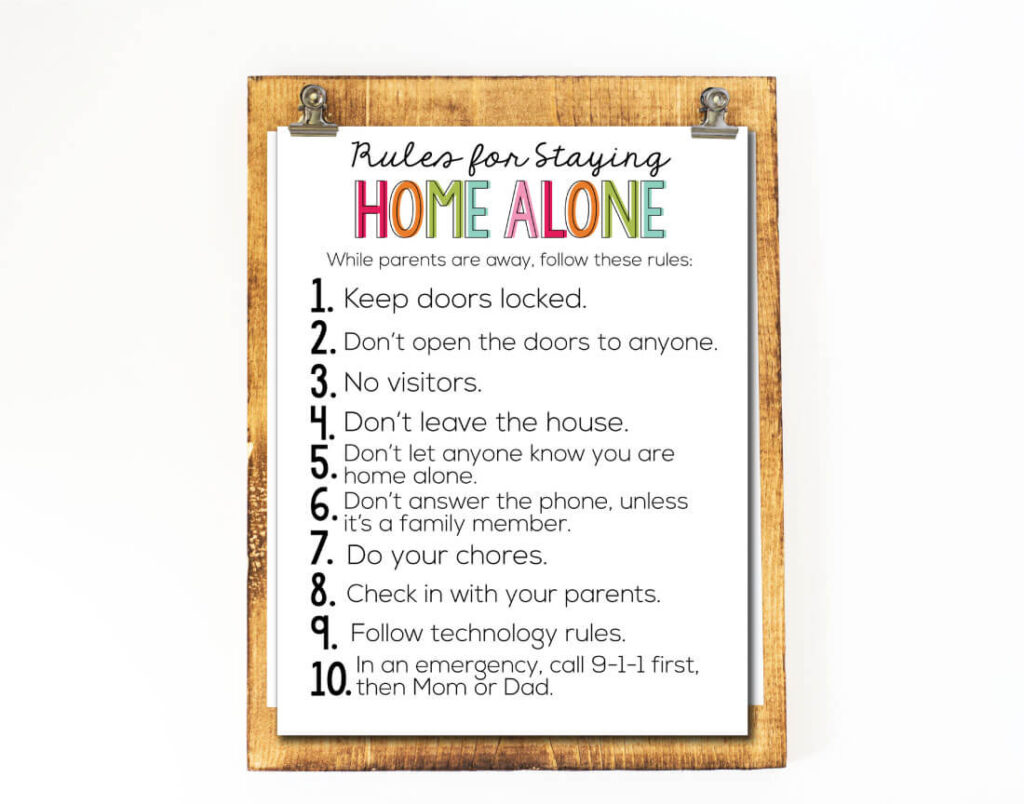
It is crucial to have rules that are both clear and consistent in order to keep your child safe when they are at home by themselves. In order to develop some key guidelines, here are few:
- No Unknown Individuals: Make it clear to your youngster that they should never open the door for a stranger. In the event that someone knocks or rings the bell, they should not answer unless it is a visitor who has been confirmed in advance. This guideline can be reinforced through the use of role-playing in a variety of settings.
- There is no sharing of phones: You should instill in your youngster the fear of divulging personal information over the phone or on the internet. They should not reveal the fact that they are at home by themselves.
- Contacts for Emergencies: Ensure that your child is aware of how to get in touch with you as well as other emergency contacts, such as a reliable neighbor or a relative close to you. They must to have a list of phone numbers clearly displayed in a location that is easily accessible.
2. Preparation for Emergencies
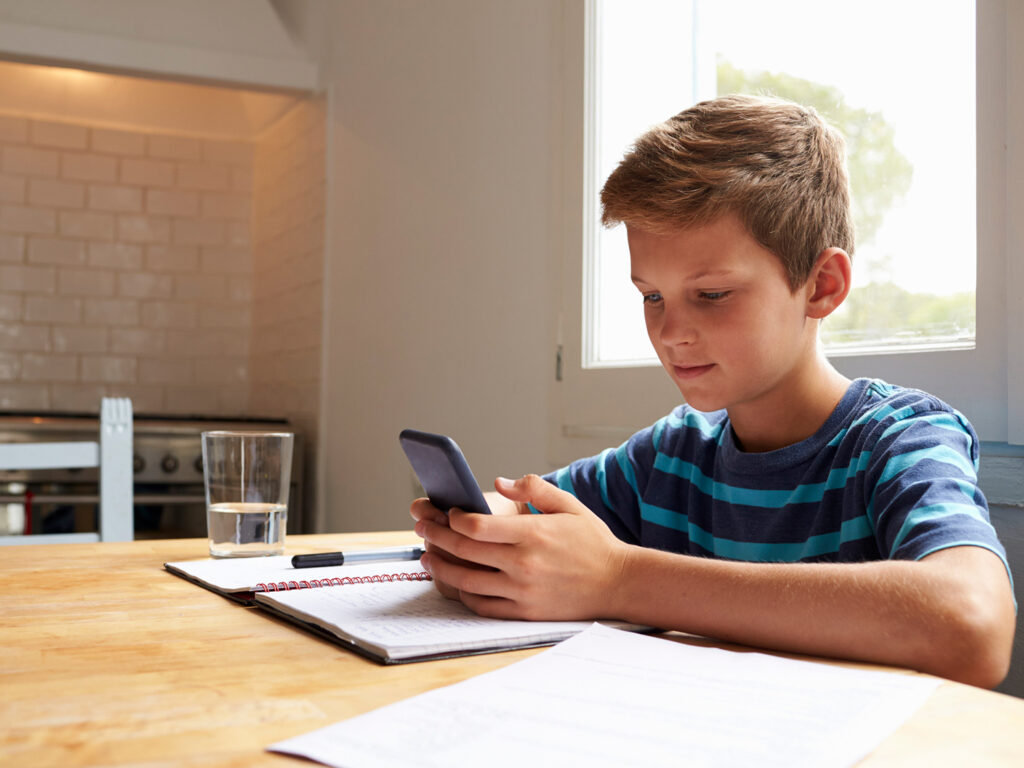
Preparing for unexpected events is of the utmost importance. This is how you can make sure that your child is aware of what to do.
Regularly practicing emergency drills, including fire drills and other emergency protocols, is an important part of crisis management. In the event that there is a fire, instruct your child on how to properly evacuate the house and where they should go once they are really outside.
- Knowledge concerning First Aid: Your youngster should be equipped with fundamental first aid information. Not only should they be able to manage minor injuries like cuts and scrapes, but they should also be aware of when to seek medical assistance.
- Addressing Power Outages: Have a conversation about what to do in the event of a power outage. Your child should refrain from using candles, and you should make sure that flashlights and batteries are easily accessible.
3. The Responsible Utilization of Technology

The use of technology can be both beneficial and dangerous. Here are some suggestions for using technology in a secure manner:
Make sure that your child is aware of safe internet practices by educating them about internet safety. They should be aware that they should not disclose any personal information while using the internet and that they should avoid conversing with people they do not know.
Screen time limits are as follows: Limit the amount of time your child spends in front of a screen so that they can participate in other activities. Spending an excessive amount of time in front of a screen might cause individuals to develop bad habits and divert their attention away from their obligations.
Controls in Place for Parents: Utilize parental controls in order to monitor and restrict content that is found online. You should make sure that the settings on your child’s electronic devices are suitable for their age.
4. Maintaining a routine and maintaining healthy habits
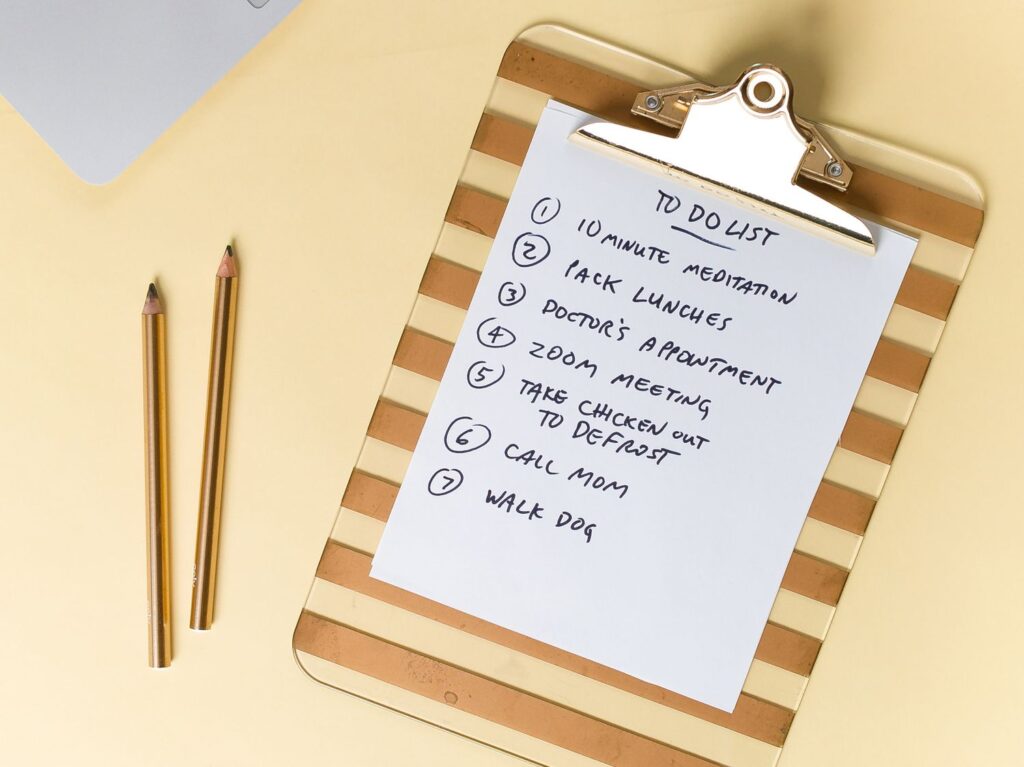
Children are more likely to feel safe and responsible while they are at home alone if they have a habitual routine.
Setting aside a certain amount of time for homework and ensuring that students are aware of the significance of completing it is an important step in the process. They are able to continue their academic progress and develop discipline as a result of this.
In addition to the responsibilities and duties: Assigning kids chores that are suitable for their age will keep them engaged and responsible. Feeding pets, cleaning up, and preparing basic snacks are all examples of activities that could be included in their routine.
Healthy Snacks: Make sure that the kitchen is stocked with nutritious snacks that don’t need much effort to make. If they are not yet proficient in the kitchen, refrain from leaving out goods that require cooking or items that are considered to be junk food.
5. Communication and check-ins
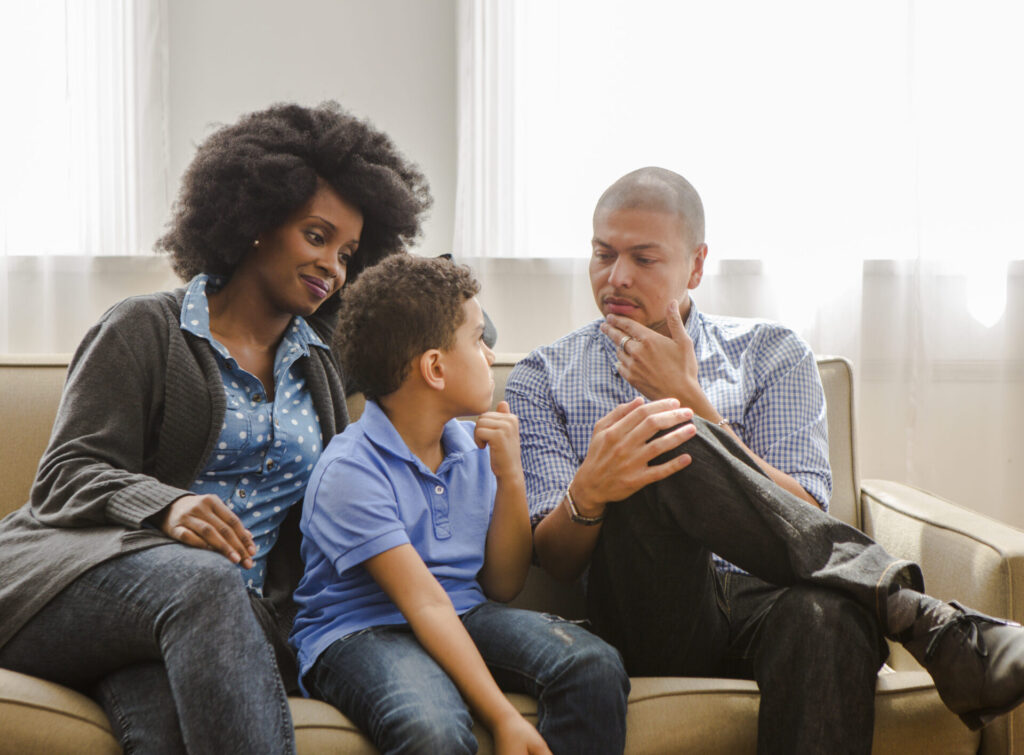
It is of the utmost importance to keep communication channels open.
Check-Ins at Regular Intervals: Make sure to schedule regular times for your youngster to check in with you. Both a phone call and a text message could be used to do this. At the same time, it gives you and your child the assurance that everything is well.
The Application of Code Words: You and your youngster should come up with a secret phrase or word that only the two of you know. It is possible to use this in phone calls to either reassure the person that everything is great or to indicate that they are in danger.
These are the daily debriefs: It is important to talk about their experience at the end of each day. Inquire about any difficulties they encountered or anything out of the ordinary that took place. This makes it simpler to stay informed and respond to any concerns quickly.
6. Having an Understanding of Boundaries to Consider

One of the most important things you can do for your child’s safety and the protection of others is to teach them to respect limits.
You should teach your child to respect the privacy of others by not snooping in personal possessions or rooms that are off-limits. This will help them learn to respect the privacy of others.
Discuss with them the significance of not posting their home-alone status on social media and the need to maintain proper social media etiquette. Predators who have access to this information may target them.
Establishing clear guidelines around the presence of friends at your home is important. Be sure to establish stringent limits regarding who is permitted to visit and under what circumstances if you do decide to allow it.
7. Handling unexpected circumstances is the seventh position.
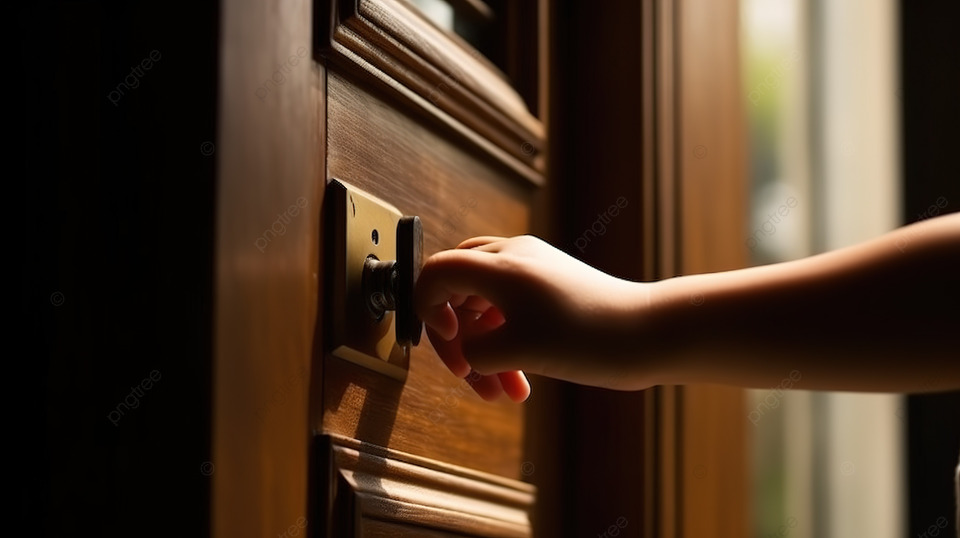
Because of the unpredictability of life, it is essential to better prepare your child for a variety of situations.
You should provide your youngster with instructions on what to do in the event that they lock themselves out of the house by accident. Provide a spare key to a neighbor that you can rely on, or have a place that is hidden but secure where you can keep a spare key.
- Noises That Are Not Typical: When your child hears unexpected noises, teach them to remain calm and collected. They should be aware of how to check in a secure manner (without opening doors or windows) and when it is necessary to ask for assistance.
- Visitor Protocol: [Verification] It is important that your child does not open the door in the event that an unexpected visitor or delivery person arrives. Instead, they should let the person know that they need to return at a later time when an adult is present by conveying the message through a door or window that is closed.
8. Establishing a Foundation of Self-Assurance and Independence
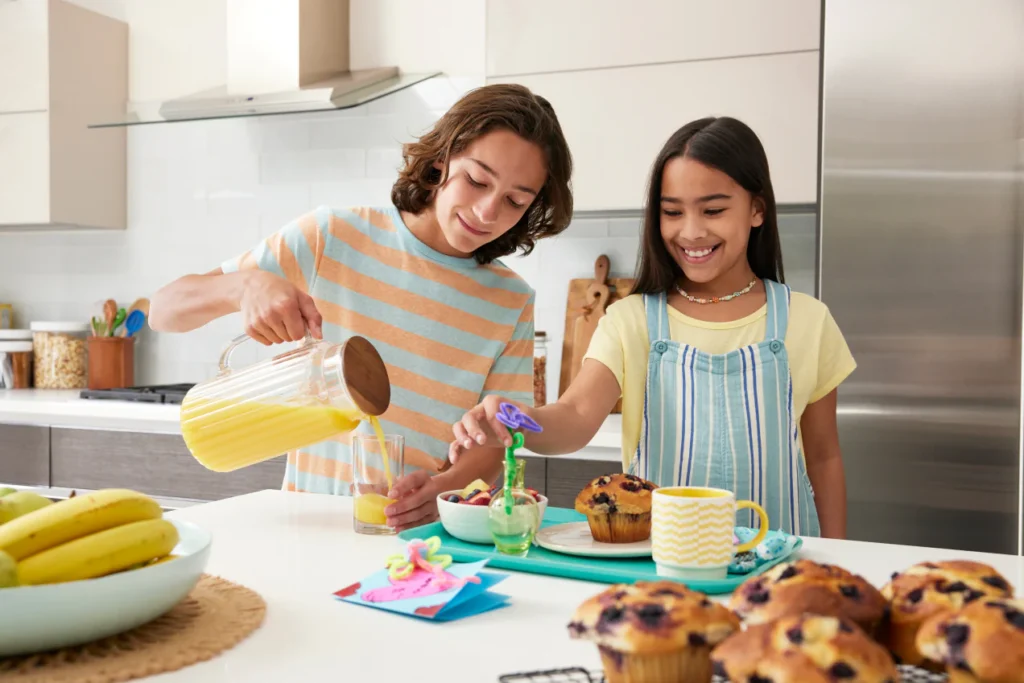
When you leave a youngster at home by themselves, you give them appropriate behavior by providing them with positive reinforcement.
- An Increase in Solitary Time That Is Gradual: The amount of time your child spends alone should be gradually increased as they demonstrate responsibility and comfort. Begin with brief periods of time alone. This enables them to adjust and provides them with a boost of confidence.
9. Safety Around the House
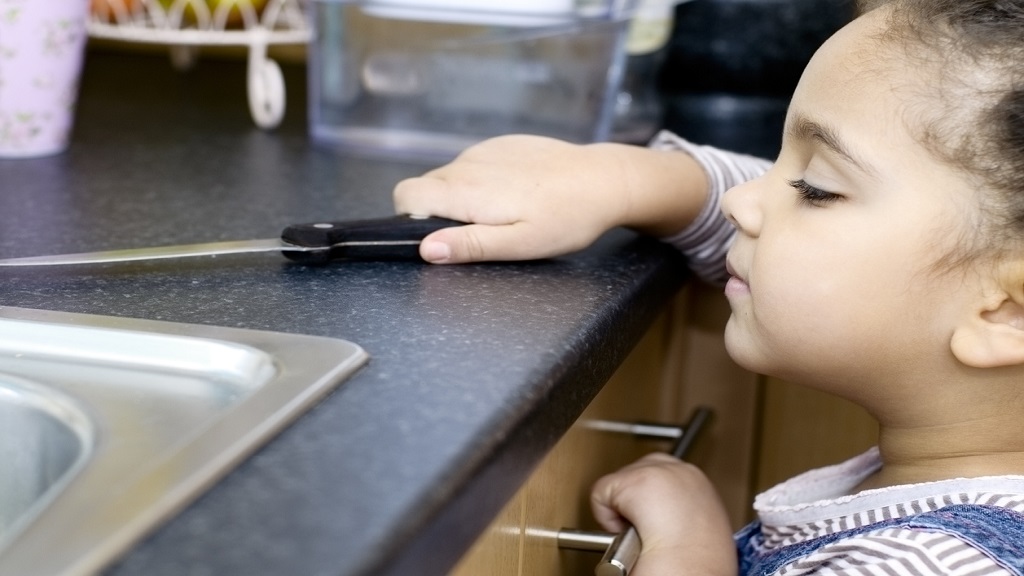
You should place as much importance on establishing regulations as you do on ensuring the physical safety of your home.
Secure Dangerous things: Put away any potentially harmful things, such as knives, weapons, or chemicals, and make sure they are locked away. Ensure that these objects are visible and out of reach at all times.
Childproofing: Even for children who are older, it is possible to prevent accidents by maintaining childproofing procedures such as covering outlets and fastening heavy furniture.
As part of the safety equipment, check to see that the smoke detectors, carbon monoxide detectors, and security systems are all operating as they should. Instruct your youngster on how to operate these systems and what to do in the event that they detonate.
10. Education and the Promotion of Self-Determination
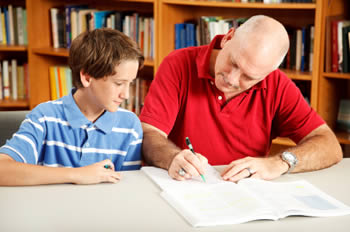
The key to ensuring your child’s safety is to equip them with the knowledge and skills they need:
In order to teach your child the fundamentals of self-defense, you should enroll them in a class that is suitable for their aged. It is possible for them to gain self-assurance and the ability to defend themselves if they possess fundamental abilities.
Memorization of Emergency Contacts: Ensure that your child is able to commit important emergency contacts to memory, such as your phone numbers, the phone numbers of a neighbor you can trust, and the phone numbers of emergency services.
Analytical and Critical Thinking: Give your youngster the opportunity to think critically and evaluate different scenarios. It is possible for kids to practice making safe decisions by role-playing a variety of different settings.
For the purpose of promoting your child’s independence and sense of responsibility, it is an important step to get them ready to spend time at home by themselves. Assisting your child in navigating this new experience with self-assurance and safety may be accomplished through the establishment of clear guidelines, the preparation for unexpected events, the promotion of healthy habits, the use of technology in a safe manner, and the maintenance of transparency in communication. Building their self-assurance and equipping them with the information and tools necessary to deal with unforeseen circumstances will not only keep them safe but will also give them the ability to take control of their own lives as they develop.